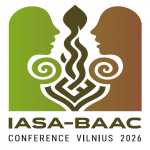3. Planning an archive recording programme
Most oral history archives have been set up with either a regional or a special subject emphasis (although there are notable exceptions, such as the U.S. Presidential Libraries, where the collections obviously focus on specific individuals). Thus a recording programme may be about the history of a particular city, province or country or, alternatively, it may be concerned with social history, military history, political history and so on (or possibly some aspect or combination of them). Stated in its broadest terms, the general purpose of most programmes, therefore, is predetermined by this regional or subject setting.
On its own, however, the particular setting which a recording programme is required to reflect goes only a little way towards determining what the actual content of it will be. This has to be worked out and specified. For example, a regional archive may implement a general recording programme dealing with many aspects of the locality: its leading citizens, its traditions and customs, its government and politics, its industry and agriculture, its art and culture. The subject orientated archive will tend to work within narrower limits but it will usually have - in common with the regional archive the task of structuring its special field of interest into appropriate component parts. For example, a military history archive might organise a programme to deal with the history of land, sea and air forces; of arms industries and wartime agriculture; of political and military leadership; of social and economic conditions in wartime. In other words, before a new programme can be set up its historical objectives have first to be decided.
The quality of oral history collecting may depend to a considerable extent on the effort and expertise that is put into the planning of the programme. Objectives should be formulated on the basis of developed knowledge and the most recent scholarship that is available, so that the programme the archive devises will make the most relevant and valuable contribution to its field of study. As the subject range of many archives is extremely broad they may have to plan programmes consisting of a wide variety of individual recording projects. This, in turn, requires a comparably wide range of available subject expertise at the planning stage. If this is not to be found entirely within the collecting institution, then the archive would be well advised to make use of outside subject specialists in identifying and developing the potential objectives of its programme.
These objectives will need to be specified in sufficient detail to provide a precise content and a working structure for the recording programme. Towards this end a formal plan can usefully be formulated. Its purposes would be to define the subject scope of the programme; to enable the work to be organised to agreed priorities; to provide a means of monitoring the overall development of the programme and the results that are being achieved.


